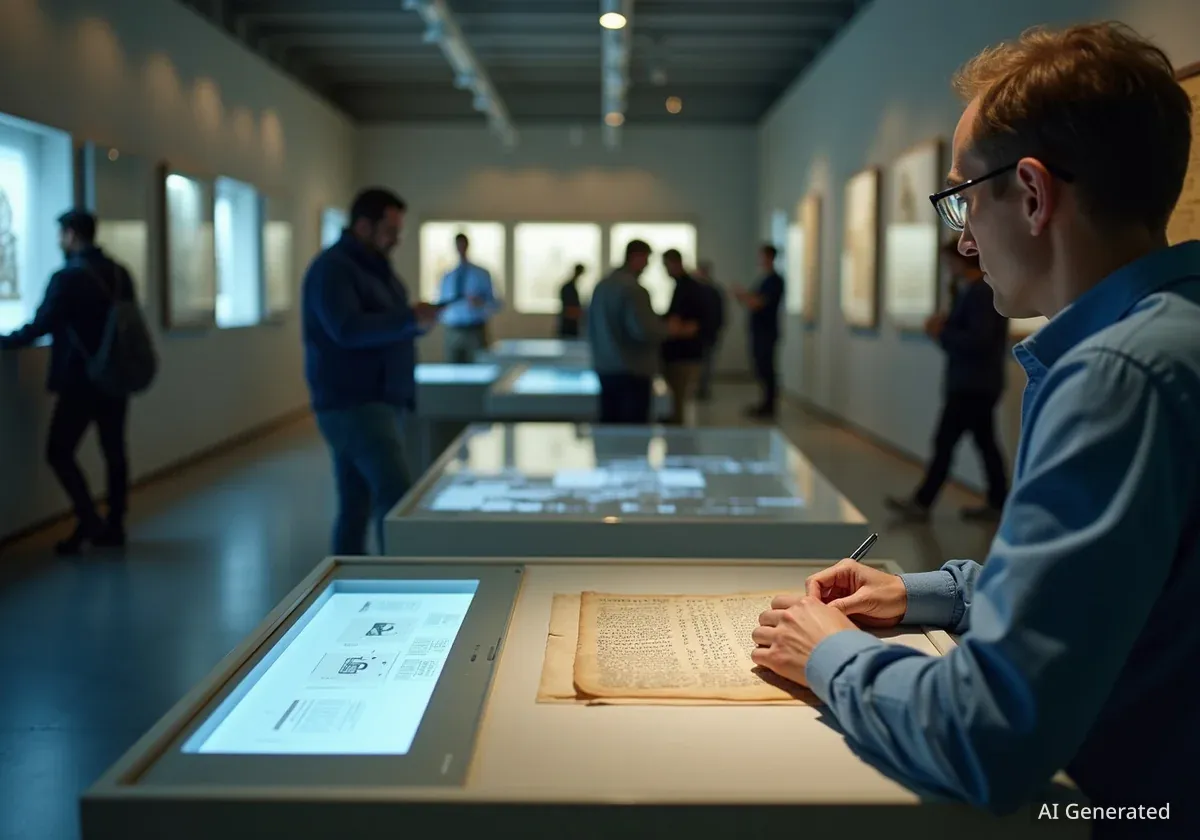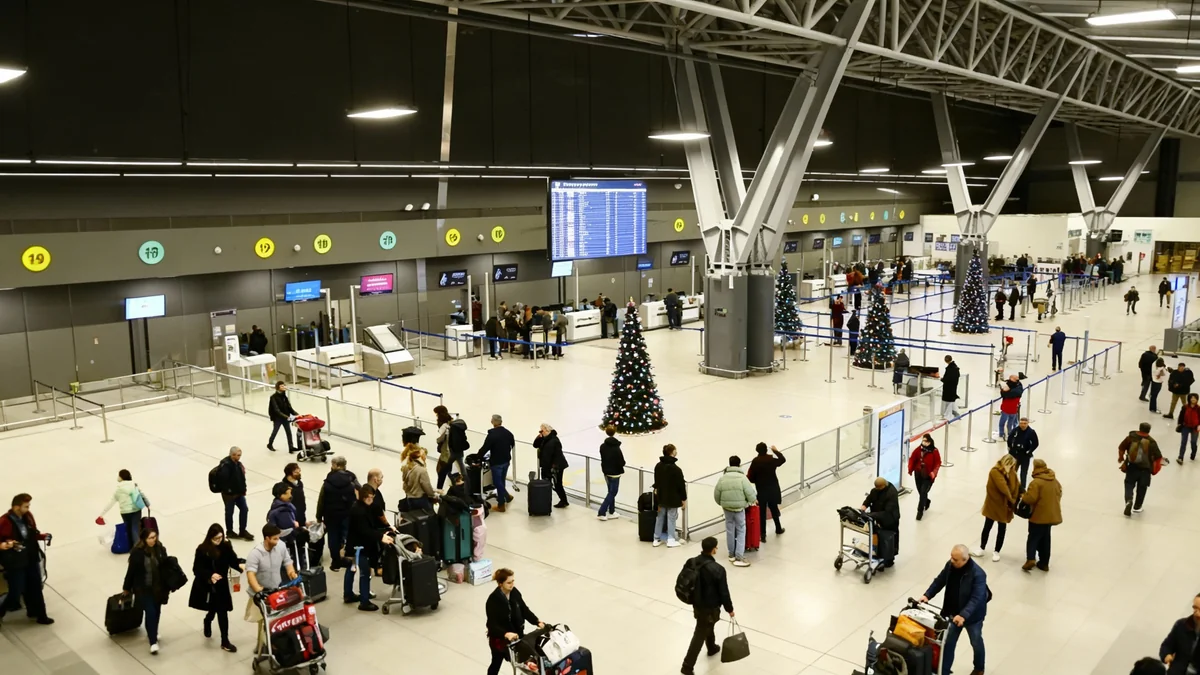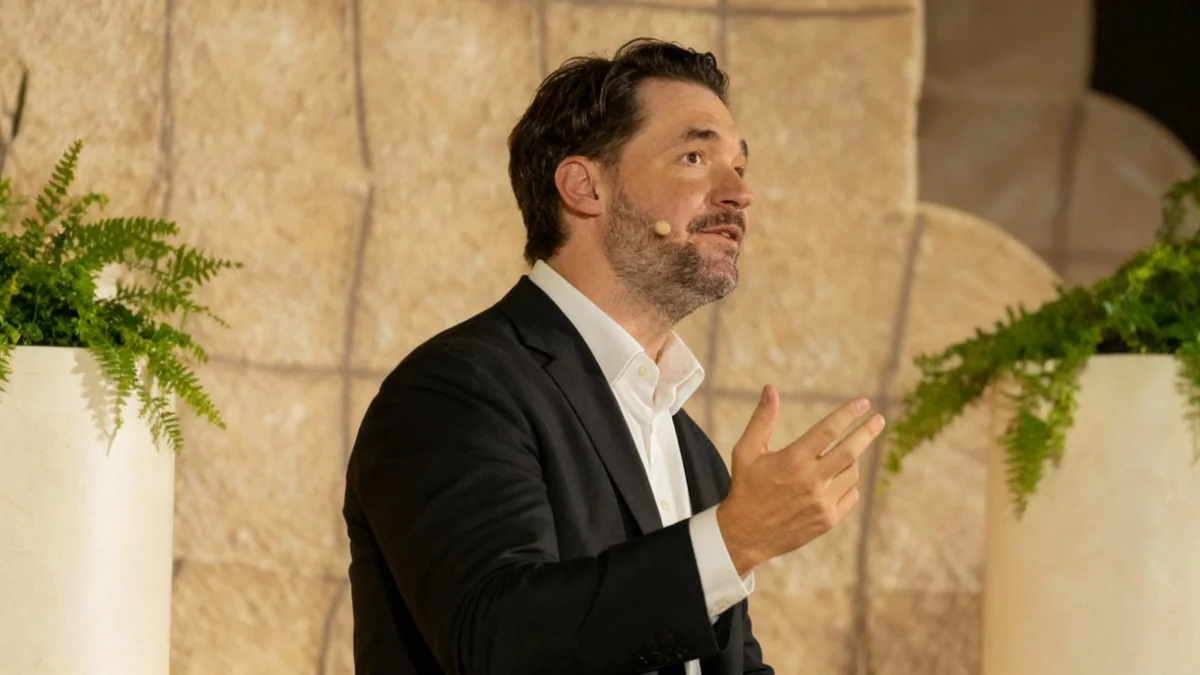A new report based on a consultation with nearly 400 professionals reveals a significant divide within the cultural heritage sector regarding the adoption of Artificial Intelligence. The paper, published by the Europeana Foundation and the Netherlands Institute for Sound & Vision, found that while a majority supports exploring AI, a substantial minority remains cautious, highlighting key areas of friction and consensus that will shape the future of technology in museums, archives, and libraries.
Key Takeaways
- A community consultation identified two main opinion groups: 'opportunity-seekers' (68%) who advocate for AI, and 'boundary-setters' (32%) who are more critical.
- There is broad agreement on the need for environmentally sustainable AI tools and upskilling professionals to improve AI literacy.
- Points of friction include the appropriate pace of AI adoption and defining the specific skills required for AI literacy.
- The report is the first outcome of the Alignment Assembly on Culture for AI and aims to start a sector-wide dialogue on responsible AI development.
Defining the Sector's Stance on AI
A comprehensive study involving approximately 400 cultural heritage professionals has mapped the sector's current views on Artificial Intelligence. The findings are detailed in the paper ‘Artificial Intelligence (AI) and the data space for cultural heritage: working towards responsible AI futures,’ which serves as the initial result of the Alignment Assembly on Culture for AI.
The research identifies two distinct but not entirely separate viewpoints. The majority, labeled 'opportunity-seekers,' make up 68% of respondents and generally advocate for the adoption and integration of AI technologies. This group focuses on the potential benefits AI can bring to cultural heritage workflows, such as improved data processing, accessibility, and audience engagement.
Conversely, the remaining 32% are identified as 'boundary-setters.' This group expresses a more critical and cautious perspective, raising concerns about the ethical implications, potential biases, and sustainability of AI systems. The paper emphasizes that these categories are not rigid, and many professionals hold views that span both perspectives.
About the Data Space
This initiative is part of the development of the common European data space for cultural heritage. This project, scaled up by the Europeana Initiative and its partners, aims to create a unified digital infrastructure for Europe's cultural assets. The role of AI within this data space is a critical question the community is now working to address.
Points of Consensus and Friction
The report highlights several areas where the cultural heritage community has found common ground, as well as topics that continue to generate debate. These insights are crucial for developing a unified strategy for responsible AI implementation.
Where the Community Agrees
Despite differing overall stances, there is strong consensus on several foundational principles. A key area of agreement is the need to embed environmental sustainability into the design of AI tools from the outset. Professionals widely recognize the significant energy consumption of AI models and advocate for climate-responsible development.
Another point of consensus is the shared responsibility to educate both professionals and the public. There is a clear understanding that technological advancement must be paired with robust upskilling programs to ensure the workforce is prepared. The community also agrees on the importance of fostering collaborations based on shared values rather than data exploitation.
Ongoing Debates and Uncertainties
Significant friction remains regarding the pace of AI adoption. While some advocate for rapid integration to keep up with technological advancements, others urge a slower, more deliberate approach to fully assess the risks and ethical considerations. This tension between speeding up and slowing down is a central challenge for the sector.
Defining AI Literacy
While there is agreement on the need for upskilling, the community is divided on what constitutes 'AI literacy.' The debate centers on the required level of technical knowledge, with differing opinions on whether professionals need deep technical skills or a more conceptual understanding of AI's capabilities and limitations.
The report notes that vague terminology around concepts like 'ethical' and 'trustworthy' AI adds to the uncertainty. A lack of concrete practices to make these ideals tangible makes it difficult for institutions to move forward confidently.
A Roadmap for Responsible AI
The paper does not just diagnose the current situation; it also proposes a path forward. It outlines an action plan with immediate next steps to continue the dialogue and build a shared vision for AI in the cultural heritage sector. The authors stress that if the community is to play a meaningful role in AI development, it must first establish a unified position.
Potential avenues for future work identified in the report include:
- Developing a set of principles for collaboration with tech companies and other sectors.
- Collecting and sharing case studies of successful and responsible AI implementation.
- Highlighting the unique expertise within the cultural heritage sector that can contribute to cross-sectoral AI projects.
The paper suggests that the community agrees AI is neither a holy grail nor an existential threat, but a tool that requires sector-specific solutions and narratives shaped by heritage professionals themselves.
Upcoming Events to Continue the Dialogue
To build on the paper's findings, a series of events are planned to foster deeper discussion and collaboration. These gatherings aim to bring together experts, policymakers, and community members to shape a joint understanding of AI's role.
The Europeana Network Association Cross-Community Workshop on Culture for AI is scheduled for October 27–28, 2025, at the SMK – National Gallery of Denmark in Copenhagen. This event will bring together 30 members to review the insights from the Assembly and contribute to a sectoral position paper.
Following the workshop, the Europeana Foundation and SMK will host a high-level policy webinar. This event will connect policymakers from Denmark and across Europe with experts to discuss the workshop's outcomes. Additionally, the ENA 2025 General Assembly on November 13, 2025, will have a strong focus on AI engagement within its communities.
Finally, data space partners will participate in the AI4LAM annual conference, ‘AI Everywhere, All at Once,’ from December 3–5, 2025, at the British Library in London. This includes a presentation on the 'Culture for AI' initiative, ensuring the conversation extends to a global audience.





